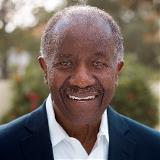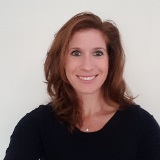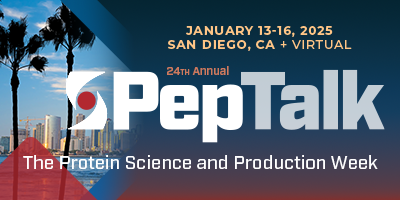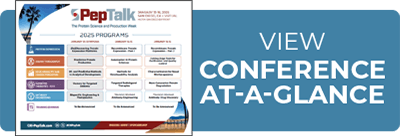
Cambridge Healthtech Instituteのトレーニングセミナーでは、実際のケーススタディ、遭遇した問題、適用された解決策、学術的な理論や背景の広範な説明が提供されます。各トレーニングセミナーでは、学習体験を最大限に高めるために、正式な講義とインタラクティブなディスカッションやアクティビティが組み合わされています。これらのトレーニングセミナーは、経験豊富な講師陣が担当し、現在の研究に応用できる内容に焦点を当てるとともに、各分野の初心者には重要なガイダンスを提供します。
トレーニングセミナーは、対面式でのみ開催予定
一貫性のある集中的な学習環境を確保するため、
会議セッションとトレーニングセミナー間の移動は禁止されています。
2025年1月14日(火) 8:30 am - 6:30 pm | 2025年1月15日(水) 8:30 - 11:00 am
TS5B: Introduction to Antibody Engineering
抗体エンジニアリング入門
Antibody Background
- Structure
- Genes
- Generation of diversity (recombination, somatic hypermutations)
- Closest human gene approach
- Minimal modification approach
- Veneering
Display Technologies Overview
- Phage
- Yeast
- Combining phage and yeast display
- Ribosome
- Others
- Natural libraries (methods, quality control)
- Synthetic libraries (including strategies for generation diversity)
- Error-prone PCR
- Chain shuffling
- CDR-targeted mutations
Next-Generation Sequencing in Antibody Engineering
- Platforms: advantages and disadvantages
- Error rates and why they are important
- Naive library diversity analysis
- Selection analysis
Antibody Characterization and Developability
- Expression
- Specificity
- Aggregation
- Solubility
INSTRUCTOR BIOGRAPHIES:
 Andrew R.M. Bradbury, MD, PhD, CSO, Specifica, an IQVIA business
Andrew R.M. Bradbury, MD, PhD, CSO, Specifica, an IQVIA business
TS6B: Advanced Purification of Engineered Biologics and Research Protein Tools
エンジニアリングバイオロジクスにおける高度な精製と研究用タンパク質ツール
Learning points:
- Surface chemistry of proteins and their behaviors in aqueous buffers
- Protein-monodispersing elements for “sticky” proteins and clearance of low abundance product degrading and destabilizing impurities
- Protein aggregates and aggregate clearance strategies
- Old semi-automated robots for 24/96-format HT-panel protein purification
- A novel hybrid HT-magnetic bead/resin-based purification robot for 6(x50ml), 24(x4ml), and 96(x1ml) formats
- Side products clearance from biologics using purification promoting mutations
- Protein purification tags and traceless engineering/purification tags for generating mutation-free bispecific molecules
- High-speed HT-low protein consumptive analytics for protein panels
Who should attend?
Although this course is directed towards protein purification experts in the fields of biologics and proteomics, biologics engineers and experienced scientists in general protein purification will find it very useful.
INSTRUCTOR BIOGRAPHIES:
 John K. Kawooya, PhD, Private Consultant of Robotics-Plate-Based-Ultra-HT Biologics Purification
John K. Kawooya, PhD, Private Consultant of Robotics-Plate-Based-Ultra-HT Biologics Purification
TS7B: Bridging the Gap from R&D to Bioprocessing
R&Dからバイオプロセシングへの橋渡し
Topics to be covered:
- Drug pipeline overview and key milestones towards IND filings
- Key elements of therapeutic candidate selection
- Developability assessments
- Process and analytical and development considerations for regulatory submissions
- Regulatory considerations, Quality-by-Design (QbD)
- Cross-functional strategies: drug discovery & development data integration, mathematical models, & utility
Who should attend:
Scientists and engineers in discovery, nonclinical development, and CMC, with a desire to facilitate and accelerate successful development of clinical therapeutic candidates across multiple modalities (biologics, small molecules, cell and gene therapies).
INSTRUCTOR BIOGRAPHIES:
 Carissa L. Young, PhD, Senior Director, Development Asset Lead, Biogen
Carissa L. Young, PhD, Senior Director, Development Asset Lead, Biogen
 Marieke Koedood Zhao, PhD, Independent Consultant, Bioprocess Development
Marieke Koedood Zhao, PhD, Independent Consultant, Bioprocess Development
2025年1月15日(水) 3:15 - 5:50 pm | 2025年1月16日(木) 8:15 am - 4:15 pm
TS5C: Antibody Drug Discovery: From Target to Lead
抗体創薬:ターゲットからリードまで
Topics to be covered include:
Different Sources of Antibodies
- Animals: mouse, rat, rabbit, chicken, llama, etc.
- Libraries: immune, synthetic, native, fully human, etc.
- B cells: memory B cells, plasma B cells, human, and animals
Antibody-Based Drug Modalities
- IgGs, IgA, IgM, Bites, nanobody, antibody fragments, etc.
- Naked antibody
-ADC
- Bispecific/multispecific
- CAR T
Antibody Engineering
- Affinity maturation
- Humanization
- Fc-engineering: half-life, immune effector function, etc.
Target Selection and Validation
Antibodies Targeting Complex Membrane Proteins
- GPCRs
- Ion channels
- Transporters and membrane-bound enzymes
Delivery of Antibodies
Crossing the Brain-Blood Barrier (BBB)
Case Studies
INSTRUCTOR BIOGRAPHIES:
 Zhiqiang An, PhD, Professor, Robert A. Welch Distinguished University Chair in Chemistry; Director, Texas Therapeutics Institute; Director, CPRIT Core for Antibody Drug Discovery; Vice President, Drug Discovery, University of Texas Health Science Center at Houston
Zhiqiang An, PhD, Professor, Robert A. Welch Distinguished University Chair in Chemistry; Director, Texas Therapeutics Institute; Director, CPRIT Core for Antibody Drug Discovery; Vice President, Drug Discovery, University of Texas Health Science Center at Houston
* 不測の事態により、事前の予告なしにプログラムが変更される場合があります。














